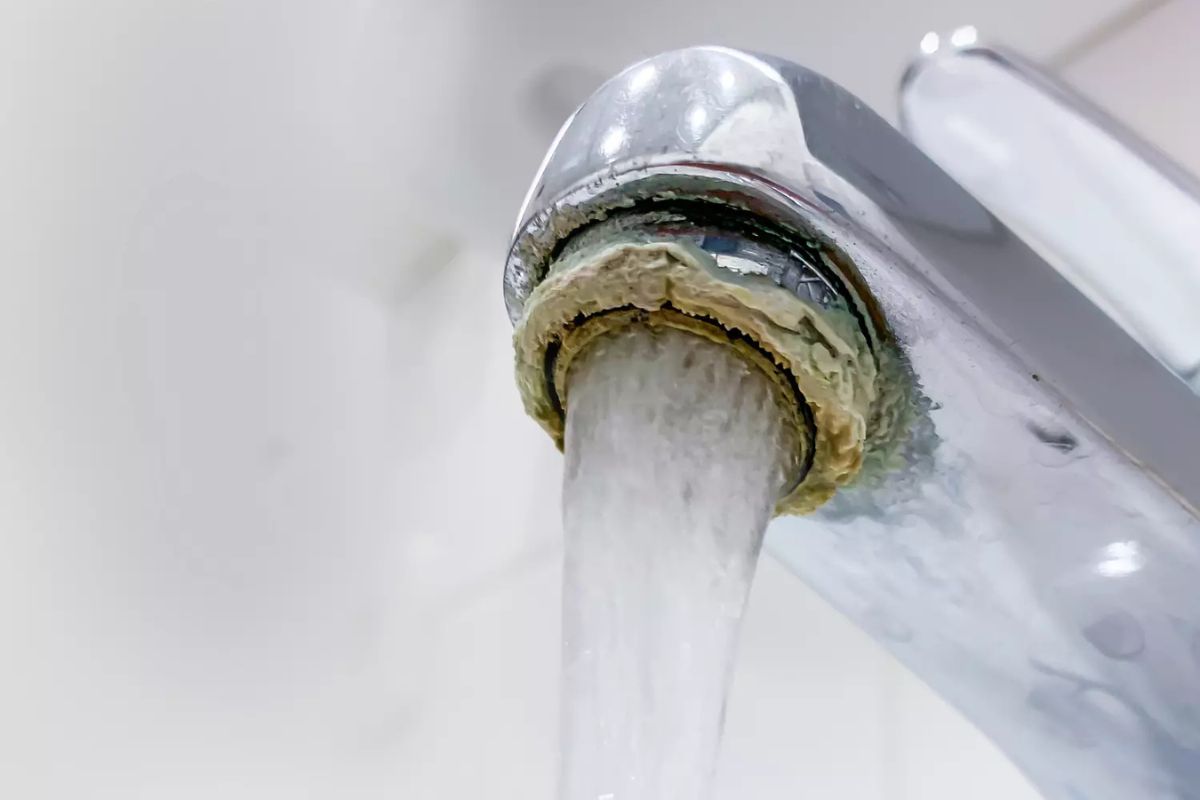Show table of content Hide table of content
Battling limescale in our homes often feels like an endless struggle. Those stubborn, unsightly deposits cling to faucets, showerheads, and bathroom fixtures despite our best cleaning efforts. The good news? Your kitchen already contains a powerful, natural solution that works overnight without scrubbing. This remarkable ingredient dissolves limescale effortlessly while you sleep, saving time and energy in your cleaning routine.
The citrus solution that dissolves limescale overnight
Lemons contain powerful natural acids that break down mineral deposits effectively. This kitchen staple transforms into a cleaning powerhouse when tackling stubborn limescale. Unlike harsh chemical cleaners that may contain ingredients that harm our bodies according to cardiac health experts, lemons offer a non-toxic alternative that’s safe for your home and family.
The citric acid in lemons chemically reacts with calcium carbonate—the main component of limescale—breaking down its structure and loosening its grip on surfaces. This reaction happens gradually, which is why the overnight method proves particularly effective. While you sleep, the lemon’s natural acids work continuously to dissolve even the most stubborn deposits.
Cleaning Washing machine: Few people know this simple trick for cleaner, softer laundry.
What makes this method truly revolutionary is its simplicity. No special equipment or expensive products needed—just a lemon from your fruit bowl, a plastic bag, and some rubber bands or string. The beauty lies in its hands-off approach: instead of vigorous scrubbing that might damage fixtures, the lemon does all the work while you rest.
This technique works particularly well on chrome fixtures, stainless steel faucets, and ceramic surfaces. The fresh citrus scent also leaves your bathroom smelling naturally clean, unlike the chemical odor of commercial cleaners. Many homeowners discover that regular use of this method prevents heavy buildup, making future cleaning tasks even easier.
How to use lemons for overnight limescale removal
The process begins with selecting a ripe lemon—the juicier, the better. Cut the lemon in half, keeping the flesh intact. If you’ve already used the lemon for cooking, don’t discard it! Even a squeezed half retains enough acid to tackle limescale effectively.
Position the lemon half directly onto the affected faucet or fixture, pressing the flesh against the limescale deposits. Ensure maximum contact between the lemon and the limescale-affected area. Some people find gently twisting the lemon helps it grip better to curved surfaces.
Next, secure a plastic bag around the lemon and fixture. This critical step prevents evaporation and keeps the acidic juice in constant contact with the limescale. Fasten the bag with rubber bands or string—tight enough to hold everything in place but not so tight that it damages the fixture.
Leave this setup overnight—ideally for 8-12 hours. During this time, the citric acid gradually breaks down the mineral deposits. This technique mimics how specialized tools eliminate stubborn residues without manual effort, letting chemistry do the hard work.
In the morning, remove the bag and lemon, then wipe away the dissolved limescale with a soft cloth. For any remaining deposits, a light rubbing usually removes them completely. Rinse thoroughly with water to remove any lemon residue, which could potentially attract dust if left behind.
Alternative solutions for hard-to-reach limescale problems
While lemons work wonders on faucets and accessible fixtures, some limescale builds up in places where securing a lemon isn’t practical. Shower heads, toilet bowls, and narrow spouts present unique challenges. For these situations, white vinegar offers an excellent alternative.
For shower heads, fill a small plastic bag with equal parts hot water and white vinegar. Secure it around the shower head with rubber bands, ensuring complete submersion. Let it soak overnight, and by morning, the limescale should rinse away easily. This method provides relief similar to how certain natural remedies deliver surprising benefits with minimal effort.
Toilet bowls benefit from a different approach. Pour one cup of vinegar directly into the bowl, focusing on stained areas. Let it sit for several hours or overnight before brushing lightly and flushing. The results often surprise even those who previously relied on harsh chemical cleaners.
For kettles and small appliances, fill them with equal parts water and vinegar, then bring to a boil (if safe for the appliance). Let the solution cool completely before emptying and rinsing thoroughly. This method effectively removes internal limescale that affects appliance performance and longevity.
Some homeowners have discovered innovative uses for these techniques, like creative household solutions that address everyday problems in unexpected ways. The versatility of natural acids makes them valuable tools in maintaining a clean home.
Cleaning Plumbers swear by this method, here’s how to unclog your pipes effortlessly.
Preventing future limescale buildup naturally
While these remedies effectively remove existing limescale, prevention remains the best strategy. Developing simple habits can significantly reduce future buildup. Wiping fixtures dry after use prevents water droplets from evaporating and leaving mineral deposits behind. This quick habit takes seconds but saves hours of cleaning later.
For areas with particularly hard water, consider installing a water softener system. These systems reduce mineral content before water enters your home, addressing the root cause of limescale. Though initially more expensive than cleaning solutions, they offer long-term benefits for plumbing, appliances, and cleaning efforts.
Faucet attachments and filters provide another prevention option. These affordable devices filter minerals from water at the point of use. They require periodic replacement but prove cost-effective compared to constant cleaning and fixture replacement.
Regular maintenance using natural solutions prevents the need for drastic measures that some might take when faced with overwhelming household challenges. Weekly treatments with diluted lemon juice or vinegar prevent minerals from accumulating to problematic levels.
Cleaning Here are the dirtiest places in the house, almost everyone forgets to clean them.
The environmental benefits of these natural solutions shouldn’t be overlooked. Unlike chemical cleaners that may contaminate water supplies, lemon and vinegar break down naturally without harmful environmental impacts. They represent sustainable cleaning alternatives that align with eco-conscious living while still delivering powerful results—unlike situations where desperate circumstances lead to extreme actions.


